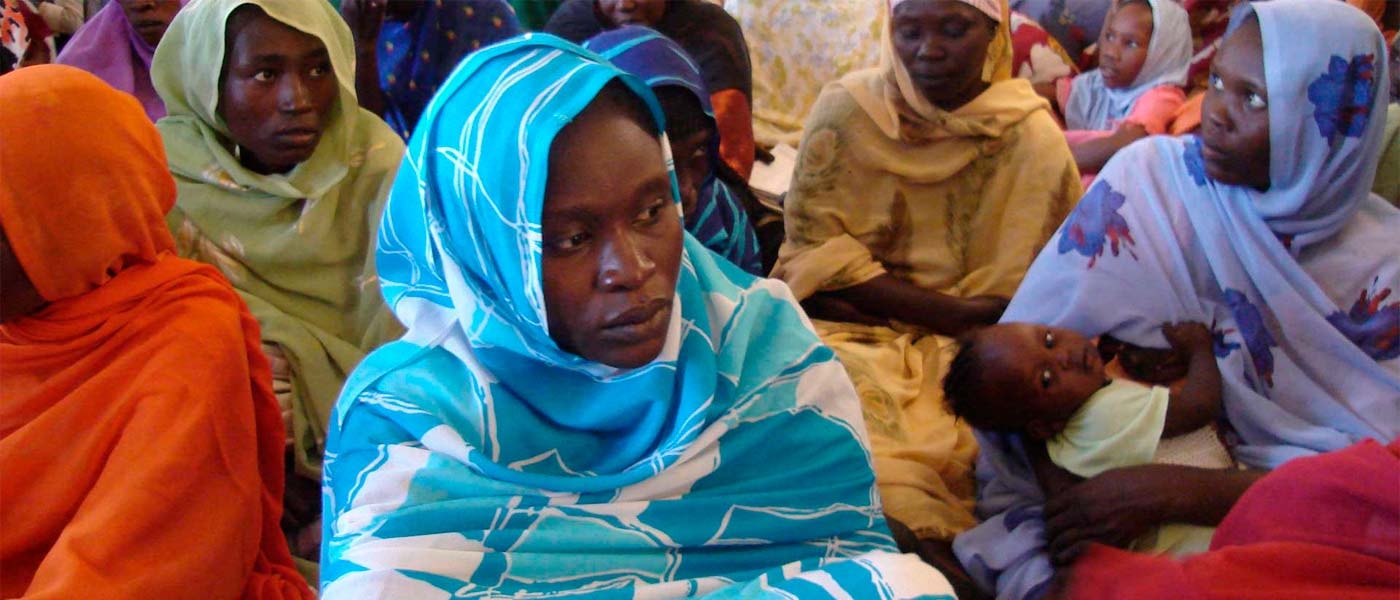
Sudan
Sudan is a large federal country with 18 states, in which poverty, stigma and long distances make it difficult to manage an effective tuberculosis programme. For the past 25 years, the country has been afflicted by more or less continuous civil war. This makes the challenges especially great.
The WHO estimates that only about two thirds of the tuberculosis cases in Sudan are diagnosed. The quality of the primary health care service, which has the responsibility for treating tuberculosis, varies from state to state. Many are late in seeking treatment and are malnourished to begin with, and thus become extremely ill before accessing treatment.
The long distance to travel to the treatment centres is a major challenge, and many are forced to return to work much too soon to avoid starvation of the rest of the family.
Information from the health personnel is often deficient or unintelligible to the patients. Many patients therefore don’t manage to complete the treatment, and are often not aware of the importance of doing so. Thus efforts to ensure correct and patient-friendly information is an important part of our work in Sudan.
Partners in Sudan
The independent patient organisation Health development Program (HDP), which was formerly known as STPA, fights tuberculosis, works with public education and contributes to making life easier for the patients. The organisation has local chapters in all of the 18 states and is run by volunteers. They work in a wide range of health activities and in cooperation with other partnes. Our work in Sudan is supported by funds from Norad, as well as collected funds.
Our work in Sudan
Patient rights:
Through cooperation with HDP, LHL International contributes to the organisation’s work to improve the situation of tuberculosis patients and their rights in Sudan. This also leads to more of those who are sick being discovered and receiving treatment.
Information work:
An effort is made in active public education, reducing stigma and discrimination and support for individual patients throughout the treatment period, so that as many as possible complete the course of medication without interruption. Among the methods used are the development of patient-friendly brochure materials and spreading the message through theatre, music and dance. Many tuberculosis patients are poor, and HDP offers start capital for income-generating activities.
Technical assistance and health communication:
Through cooperation with Epi-Lab, we test new models for health systems in which persons with a cough have the opportunity to be examined for both tuberculosis and other lung diseases at the same treatment location.
We provide technical assistance in the form of the follow-up of activities in the country. We also work to ensure patient-friendly treatment. We do this by focusing on health communication and patient-friendly information materials, as an effort to reduce stigma against TB patients. Stigma severely limits the efforts of an effective Tuberculosis program
Our goals and results in Sudan
Since 1994 and up to the present time, the annual registration of tuberculosis cases has increased from 500 to more than 21,000. Rapid and good diagnostics, as well as standardised treatment with daily follow-up,are key elements for patients' ability to complete treatment and recover. With HDP safeguarding the patients human rights and bridging gaps in access to treatment, these are major achievements
According to calculations from the WHO, however, around one third of those who have tuberculosis in Sudan are missed from diagnosis. In other words, there is still a great need to ensure that more people have access to a correct diagnosis and treatment, and actually manage to complete the long course of treatment.
The patient organisation HDP engages in public education, as well as information to the patients, and uses innovative methods in reaching people in remote areas and with special communication needs with information.
The goal is for everyone who is ill with tuberculosis in Sudan to receive the correct diagnosis, the correct treatment, and manage to complete the treatment.